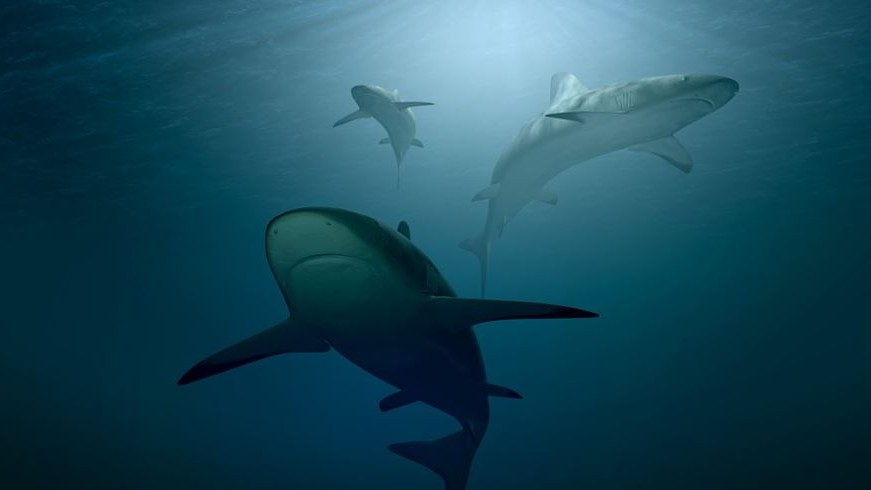
Sleep is a ubiquitous behavior found throughout the animal world. In general, it is characterized by immobility and poor responsiveness.
Despite the inherent vulnerability to sleep, persistence on evolutionary time suggests that it fulfills one or more basic functions.One hypothesis about this central function is that sleep plays a role in saving energy by enhancing relaxation and reducing metabolic rate in relation to wakefulness.
Energy savings during sleep have been reported in various animals, including humans, cats, rats, birds, and fruit flies, but it is not known whether a reduction in energy consumption occurred while the fish were sleeping.
According to a study by a group of researchers from the Australian scientific institution, sharks maintain sleep hours to conserve energy.
For a study led by Michael Kelly of the University of Western Australia, seven checkerboard sharks were collected from the Hauraki Bay in northeastern New Zealand and kept them in an outdoor aquarium under natural light conditions.The animals were fed a sardine diet and kept food for at least two weeks before the start of the experiment to ensure that the animal reached a post-absorption condition.
After that period, these checkerboard sharks (which got their name because the color pattern of the dark spots on the skin resembles a checkerboard) were placed individually in a closed breathing laboratory. Automatic intermittent flow respiratory meters and video recording began 48 hours later to allow each animal to adapt to the new conditions before data collection began. Each protocol then lasted 24 hours and was exposed to 12 hours of light and 12 hours of darkness.
During this period, they evaluated changes in oxygen consumption rates to define whether sleep is a determining factor in energy conservation in cold-blooded vertebrates.
The eye condition was scored as open or closed, and the body posture of the inactive shark was evaluated as flat (lying on the bottom of the tank) or upright (sitting on the chest fin). The shark was keeping his eyes open while swimming, but found that the eyes of these animals were closed during sleep.

The state of activity was classified as swimming, resting (less than 5 minutes of inactivity), or sleeping (inactive for more than 5 minutes). According to the study, the oxygen level in sharks was significantly lower during the sleep period, which lasted about 5 minutes. Other signs that they are sleeping is that a high level of oxygen was recorded during the animal's active period, that is, when swimming.
As for the position of the body, scientists have observed that during sleep they take a flat body position, as opposed to resting. Thanks to this study, an ancient theory was shot down that sharks did not fall asleep.
Keep reading:
Últimas Noticias
Debanhi Escobar: they secured the motel where she was found lifeless in a cistern

The oldest person in the world died at the age of 119

Macabre find in CDMX: they left a body bagged and tied in a taxi
The eagles of America will face Manchester City in a duel of legends. Here are the details

Why is it good to bring dogs out to know the world when they are puppies




